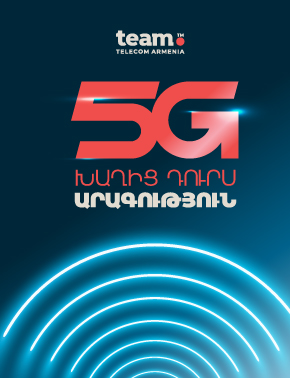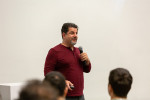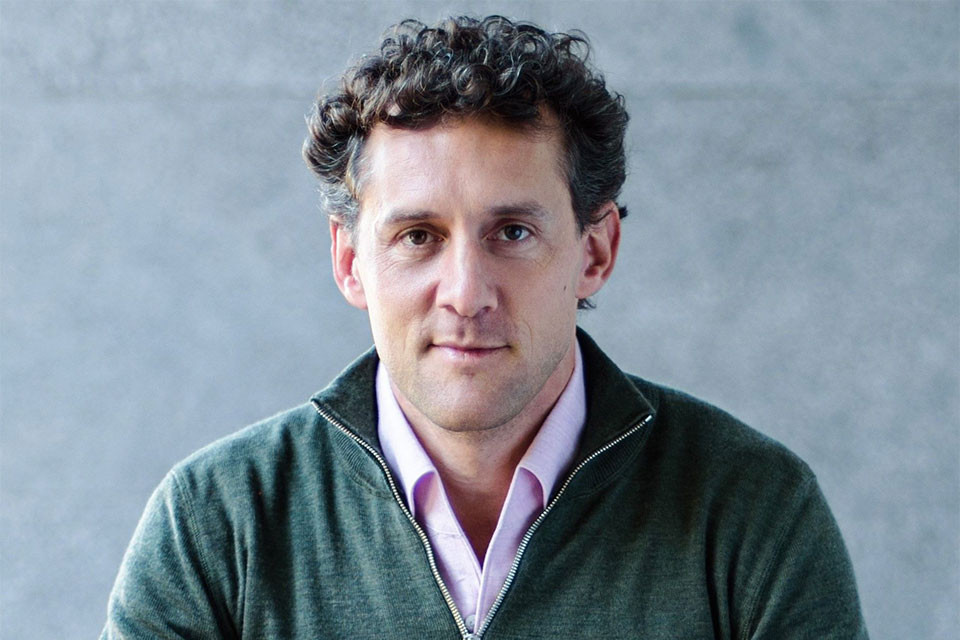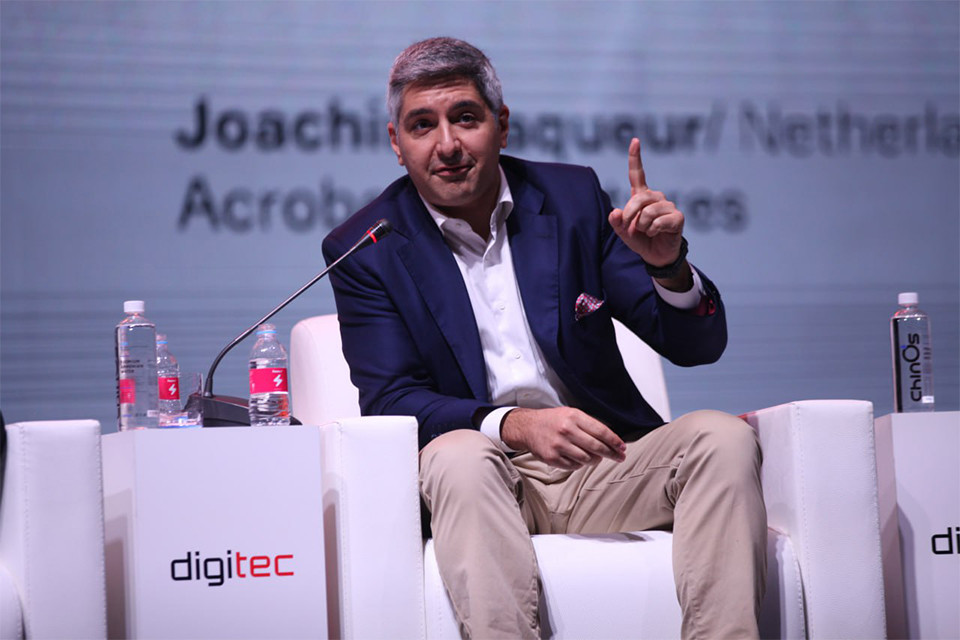-
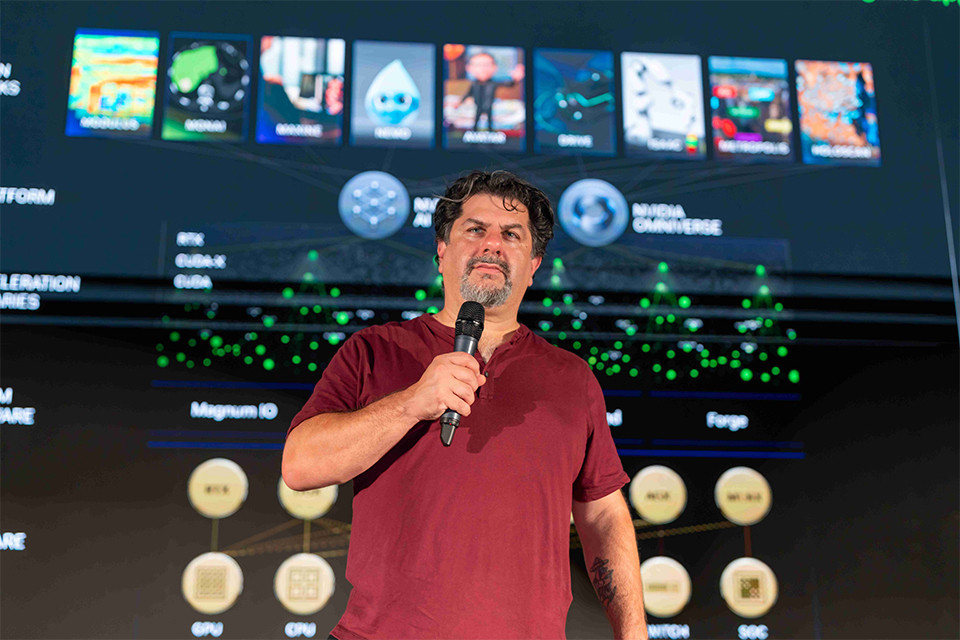
Rev Lebaredian
-
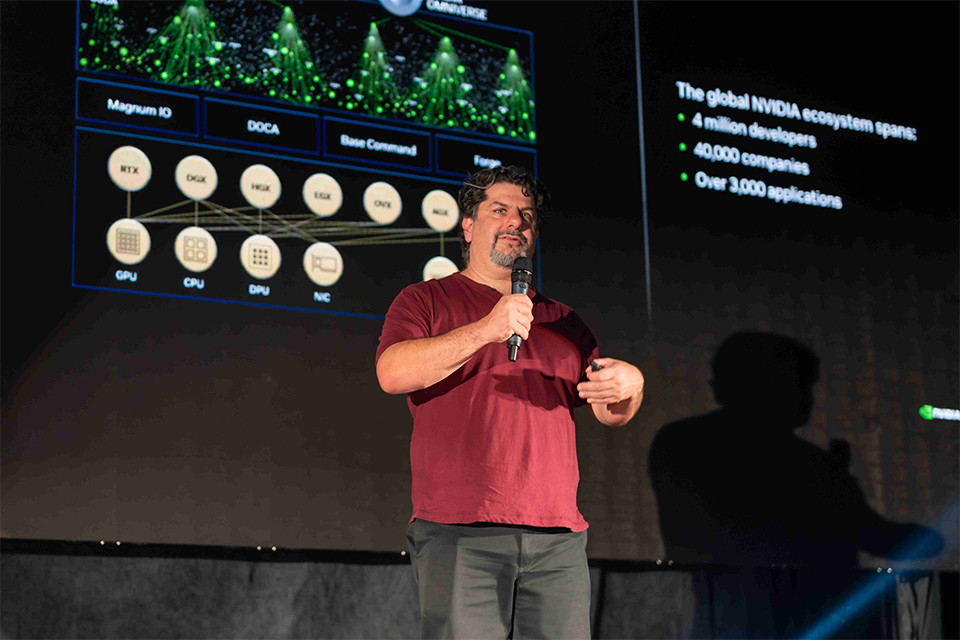
Rev Lebaredian
-
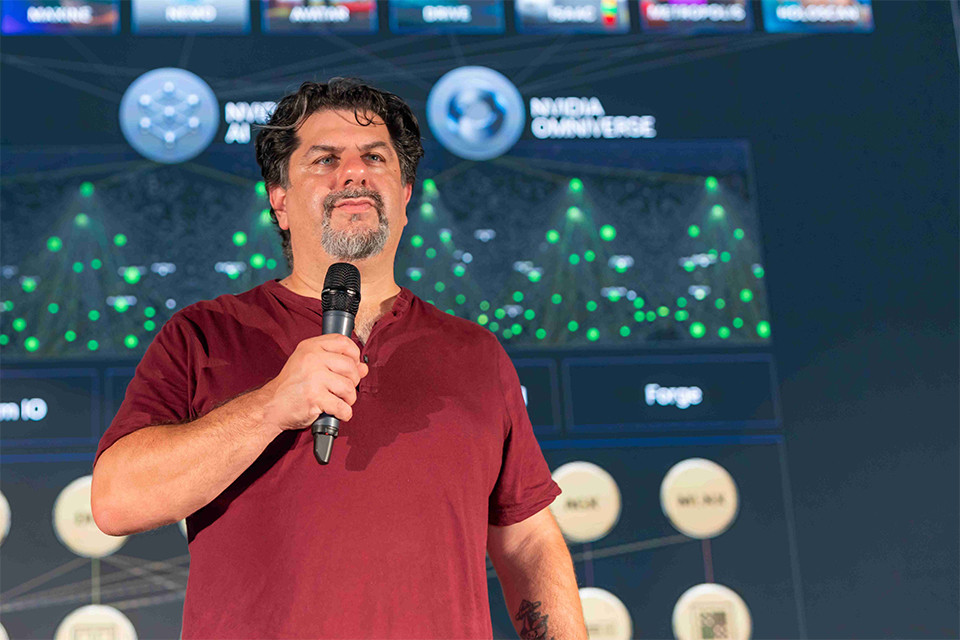
Rev Lebaredian
-
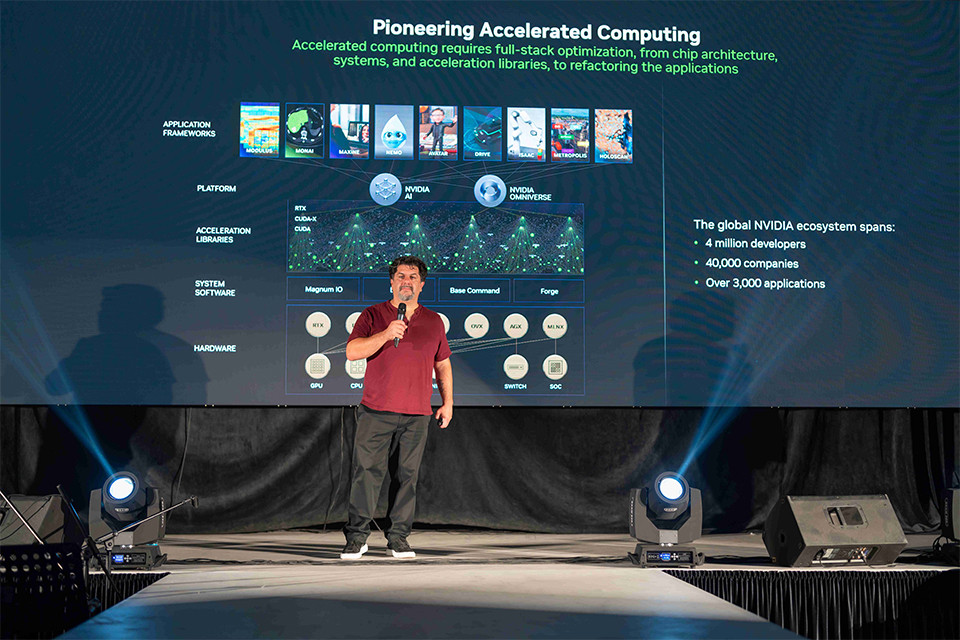
Rev Lebaredian
-
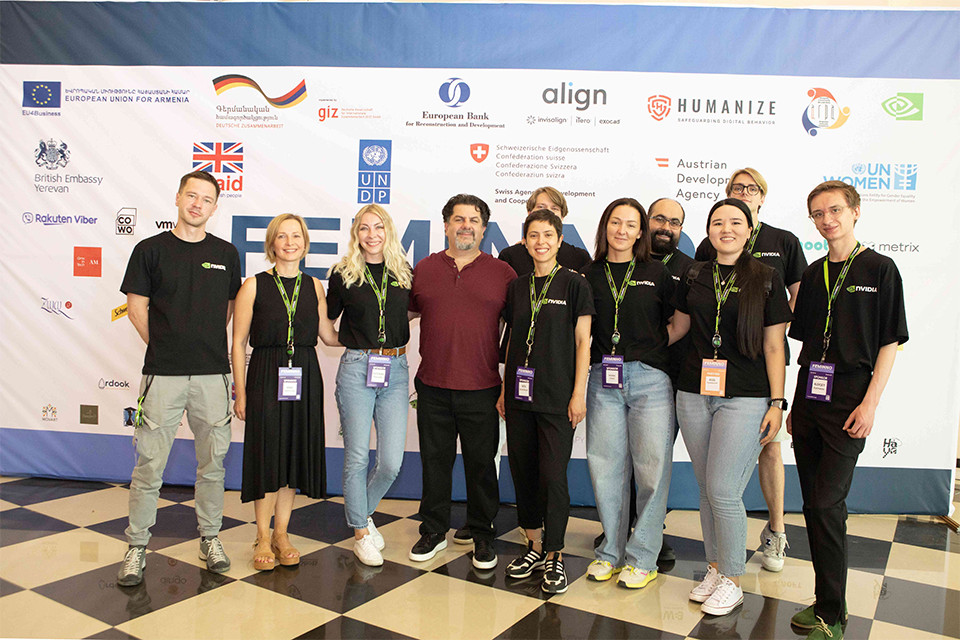
15:22 | 03.08.23 | Interviews | exclusive 25074
Rev Lebaredian: Armenian IT community should find gaps areas in AI
NVIDIA is now in the $1 trillion club.
The company opened an office in Yerevan a year ago. During the Feminno 2023 conference iTel.am talked with the NVIDIA Armenia’s branch head Rev Lebaredian, Vice President of Omniverse and Simulation Technology about the Industrial Metaverse, Generative AI, the operations of the Armenian office and the difficulties caused by the global crisis.
Speaking about industrial Metaverse you mentioned it’s the Next generation of the internet. Is there a threat of losing the real world by creating a digital and virtual one?
If we recreate the real world in a virtual world in a Metaverse, what I call the 3D internet, then we might lose people to this new world. I look at it the opposite way. I think we've already lost many people to the virtual world, but it is a 2-dimensional abstract world of social media. They either watch videos or text or something else in social media apps like Tiktok, Facebook, etc. That world was constructed by people like me, by computer scientists, it wasn’t constructed by people who are experts in building social spaces, where people can interact with each other delightfully.
 Rev Lebaredian
Rev Lebaredian
Mankind through our history has evolved to experience the world and each other through all of the senses. Through much richer inputs, than just these little screens of smartphones in front of us. Billions of people are staring at their phones all day. I believe that if we make the internet like the real world or even duplicate the real world then we have a chance of bringing all of the great things of the real world and our interactions to the internet.
There is something in social media psychologically that is very unnatural for us. We don't know how to deal with it. When you post something on social media millions of people can see what you’ve written, but you don’t get feedback, you don’t see their facial expressions. People say things that they never say in the real world, for instance inside the room where a child will hear it.
We are going to invite experts in the real world: people who know how to build museums, parks, cities, and wonderful spaces in what they evolved into many years of their craft, so they can come into this virtual world and make it real and more pleasant.
The launch of ChatGPT has sparked a growing interest in Generative AI. Obviously it is transforming industries and possibilities. What do you believe this AI opportunity is in Armenia, and how is NVIDIA uniquely positioned to support its development in Armenia?
Now everybody understands that AI is serious. That everything has changed. This moment happened in 1993 when the Web was born. The internet existed and people didn’t understand what it was until the Web came into use. I believe the same would happen with ChatGPT, that technology had existed for a while. When GPT3 was released the technology had been around for three years, but it was the first time we got to interact with it. We are just at the very beginning of understanding how it is going to change everything. In the same way we didn't completely understand how the internet changed everything. It is very important right now to not make mistakes, we’ve built the internet without any ideas or plans or thinking about it. We can’t do that again, this time we should be wiser.
 Rev Lebaredian
Rev Lebaredian
Armenia has some challenges when it comes to AI, particularly Generative AI. This kind of advanced AI requires a lot of computing. In order to play in the AI game you need to have a factory that can produce the intelligence, that factory is a super computer. That kind of computer doesn’t exist in Armenia yet, and it is not available to most researchers, companies and startups and everyone else. I believe it is possible to bring such a computer here, I’d like to see that happen.
The AI sector can grow inside of Armenia. If Armenia manages to do this it has an opportunity to compare to other bigger countries. Armenia is a startup country, so it could be agile, it can focus on areas in AI where there are gaps. I recommend the whole community in Armenia try to find these gaps and to focus all the resources on them so we could be excellent in world class, better than anyone else in this field. But first we need to get the computers.
Last time we talked was about a year ago when you’re opening an NVIDIA office here, and you were actively hiring talents. How is it going here? What new challenges or opportunities do you see?
Last year we met at Tumo when we were setting up to create a pipeline to hire more talent here. Unfortunately at that time we had a global hiring freeze across the whole company.
Many other companies were doing layoffs at the time. We didn’t do layoffs, but at least we stopped hiring and that affected our hiring here. We have over a hundred people in NVIDIA Armenia, we couldn't expand as much as I wanted to, we expected to grow pretty quickly. But now we are ramping up active hiring again. We’ve opened up new positions.
What are the specific tasks that the Armenian experts are dealing with?
Like almost all of our other offices, we don't specialize in a particular task. When we hire in any other offices it is opportunistically, when there is a talent that is useful in something or somewhere in the world we are open to hiring them in any location. So we tell our hiring managers that they can hire in any country they want.

We have many different layers that are represented in our office. We have AI, Omniverse Digital humans, Robotics, Computing platform tools, System software, and even some hardware design. It is actually quite nice when you have these smaller offices, but they have a cross-section of the whole company because people get to work right next to someone who is completely in a different area and they can easily exchange ideas and knowledge.
What gaps do you think there are in the Armenian tech ecosystem and how NVIDIA is helping to fill them?
The biggest challenge is that there is not a lot of senior tech talent available. There are some but they usually start their own companies. But that is ok. There is a lot of great junior talent coming out of the universities and we are investing in them. We have internship programs for college students. We think in the very long term, so when we are hiring our hope is that the work in NVIDIA will become their last job.
Nune Grigoryan talked to Rev Lebaredyan

17:29 | 24.09.25 | Articles
Jacopo Losso on Cross-Border Investments and Why Armenia Attracts Angels

